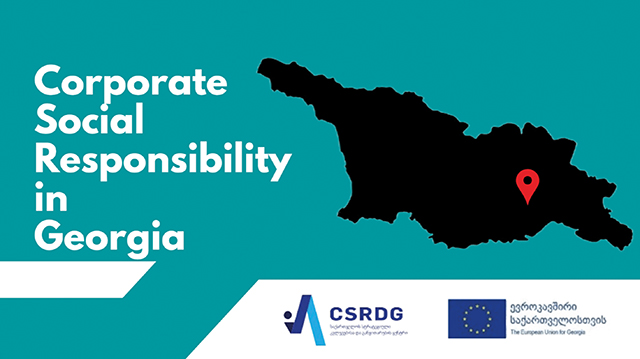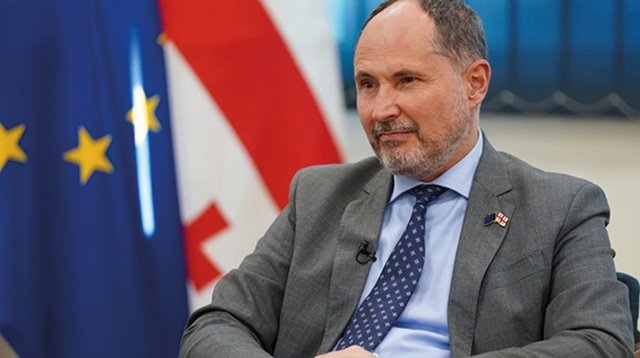As the country continues to follow the trends in Europe, Georgia has seen a wave of integrations with Western business standards. Health and welfare, employee rights, safety, and equal opportunity have become more commonplace, making foreign investments more lucrative. The latest wave has brought interest from both public and private institutions in establishing norms for corporate social responsibility (CSR).
As a part of Georgia’s goal for European integration, it has become increasingly important to educate Georgian businesses and government entities to develop public policies to promote CSR. With key elements of human rights and environmentally safe practices, Georgia needs to be prepared to follow upcoming legislation with its European partners.
To do this, the CSR Stakeholder Forum for Georgia was established to provide a focused and vision-led approach to CSR standardization. It unites businesses, government bodies, educational institutions, supranational organizations, supply chains both inside and outside the European Union footprint, and employee advocacy groups. While no easy task, it is a team effort that requires a foundation built from all stakeholders.
One of the important preconditions for the development and implementation of an effective policy for CSR is commitment and consistent engagement. This consists of various interest groups linked to CSR and coordination of dialogue and cooperation between private, civil, and public sectors. The CSR Stakeholders Forum is the instrumental component to keep these vital communication channels open.
As they themselves state, “the Forum’s mission is to contribute to multi-stakeholder dialogue on CSR and promote CSR-enabling policy and an institutional environment to facilitate Georgia’s sustainable development and European integration.”
The CSR Stakeholder Forum in Georgia was established within the frames of the Civil Society STAR Initiative implemented with support of the EU and Konrad-Adenauer-Stiftung (KAS).
Key proponents of the Forum included Eka Urushadze, director of CSRDG, Pawel Herczynski, Ambassador of the European Union to Georgia, and David Aprasidze, project manager with KAS. In addition to these, other stakeholders in the Forum included the Civil Society Institute (CSI), Center for Training and Consultancy (CTC), Education Development and Employment Center (EDEC), and the Institute for European Politics (IEP).
Each brought a unique and valuable perspective to the Forum, in addition to a network of additional partners. However, the objective at the core of the Forum is gaining participation from two key entities: government and businesses. For Georgia, these are often two entities that are not easily brought together on the same goals.
While the government has the legislative control on the issue of CSR policy making, bringing businesses to the table is likely through incentives. Tax benefits, education, and further inclusion in European commerce channels provide Georgian businesses with fuel to make the changes in their “value chain” to respect social, environmental, and legal obligations, the Forum believes. As stated by the stakeholders, the European Commission “has adopted several proposals for legislation that will establish legally binding duties for businesses to respect human rights and the environment.”
This is a defining moment for the country, members of the panel agreed. The country has taken so many steps to integrate on a multitude of levels with Europe and the collective West, the potential for Georgia’s economy and its sustainability are significant. However, the Forum is only the most recent chapter in this quest.

With the leadership of the CSRDG, this mission of CSR development has been a lengthy project in the country. From 2011 and 2012, CSRDG was instrumental in sparking discussions on State policy for CSR development through workshops and training sessions for all sectors. Through exhaustive analytical research, CSRDG’s Lela Khoperia, the Coordinator of the Corporate Social Responsibility Program, led the creation and publication of “Corporate Social Responsibility and the Role of the Public Sector ” for the Georgian government.
While the Forum is aware that their work is still unfinished, there was a feeling of confidence among its participants. The accomplishments of the past decade are evident, and the involvement of the private and public sector is at the highest since the beginning of this initiative. With the outspoken and enthusiastic support of the EU, partner organizations, and the Georgian government, CSRDG is consistent with its stated mission “to promote good governance, stable and inclusive economic development and the formation of an active civil society for the benefit of the Georgian society.”
By Michael Godwin














